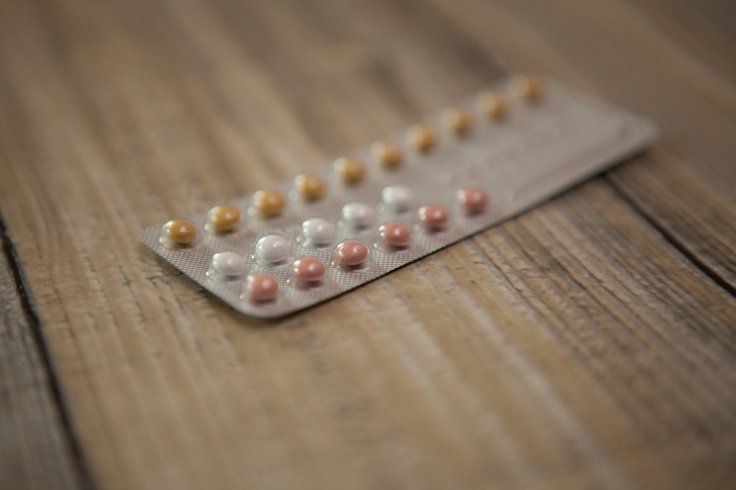When it comes to birth control, there are many options available to women. From basic physical contraceptives such as condoms to intrauterine devices such as Copper-T, there is no dearth of contraceptive methods that can be chosen to prevent pregnancy.
One such convenient method of avoiding pregnancy is 'Birth control pills'. It is one of the most widely used and prescribed methods of birth control for women. We bring you some facts about this tiny birth controlling marvel.
What are birth control pills?
Simply known as 'the pill', it is a hormone-based form of birth control. They contain a combination of two female hormones—Estrogen and Progestin. A variant that contains only progestin, also known as mini-pills, is also available.
How do birth control pills work?
As mentioned above, estrogen and progestin are two hormones that are found in birth control pills. Working in combination with each other, these hormones prevent ovulation or release of eggs by the ovary. In addition to this, they also alter the lining of the uterus to inhibit the development of pregnancy.
They also alter the composition of the mucus in the cervix to prevent the movement of sperm. It is important to note that these pills only prevent pregnancy and do not provide protection against sexually transmitted diseases.
Types of Birth Control Pills
There are many options that women can choose from when they decide to go on birth control pills. Some of the common types are 21-day, 28-day, 90-day, and 365-day, among others. What sets one type of pill from the other is the frequency of one's menses.

For example, in a 21-day pill program, one takes pills for three weeks, followed by one week without pills. Therefore, the woman will have her period once a month. Similarly, in the 90-day pill routine, a woman can expect to have her periods once in three months.
In a study published in The European Journal of Contraception & Reproductive Health Care, it was reported that only 4.4 percent of women who go for the 84-day pill program fell pregnant, while 7.3 percent of women on the 21-day schedule became pregnant.
Choosing the right option
There are various options available with varying levels of these hormones. The effects of these pills differ from individual to individual. Therefore, consulting a doctor before beginning a program is advisable. Tristan Bickman, OB-GYN in private practice, told Forbes, "The patient's symptoms will determine which pills the [doctor] will provide."
How soon will these pills take effect?
In the case of pills that contain a combination of progestin and estrogen, the protection against pregnancy begins seven days after the start of the routine. However, in the case of pills that contain only progestin, also known as mini-pills, the protection can kick in as early as 48 hours after taking the first pill.
However, it is important to remember that only one pill must be consumed every day. An overdose can cause undesired side effects. "The hormones are dosed for 24 hours and should be taken 24 hours apart," said Bickman.

When is the ideal time to take the pill?
Well, it is all about convenience when one talks about the 'ideal time'. The idea is to take the pill at a particular time of the day which is convenient, can be a part of the daily repetitive cycle and time, and does not interfere with other medication.
Bickman stressed that "It is usually recommended for a patient to take the pill at the time of day where she will be able to do it each day and remember. If she is taking other medicine it is good to do it at that time as it is less likely a pill will be missed."
How effective are these pills?
The chances of an accidental pregnancy are as low as 1 percent in an ideal scenario. The ideal scenario is: following the routine of taking the pill every 24 hours at a fixed time.
Nevertheless, taking the pill a few hours late or missing a dose is very much a possibility. In such cases, nearly 9 percent of the women get pregnant within a year of the commencement of the program, according to CDC.
What not to do when on birth control pills?
There a few strict noes are when one is one birth control pills.
Are there side effects of birth control pills?
Like any medication, birth control pills come with their own set of side effects. While some can be mild, others can be severe. Some of them include nausea, breast tenderness, intermenstrual spotting, headaches and migraine, mood changes, decreased libido, vaginal discharge, missed periods, and weight gain.
One of the long terms risks includes the development of various forms of cancers such as breast cancer, cervical cancer, and ovarian and endometrial cancer. The female hormone, estrogen, is associated with the development of these cancers. Therefore, additional estrogen due to the pills could increase these risks. Another long-term risk of birth pills is the development of cardiovascular problems. The risk of heart strokes, attacks, and blood clots, increase significantly due to these pills.









